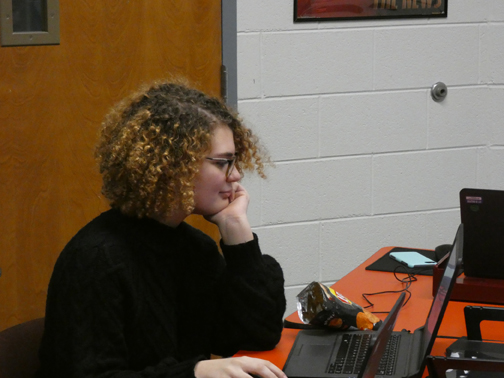Netop allows teachers to “spy” on students
In the Kingsport City Schools system, students use computers every day. While in class teachers use a program called “Netop” to monitor their students.
“Netop uses our shared network connection to link teachers to their students in their Google Classroom to be able to start classes and view student activity,” Laura Valentine, an IT Technician for Sevier Middle, said.
Teachers feel like they need this tool because some students aren’t motivated and tend to get distracted by other apps.
Katrina Musick is a seventh grade science teacher who uses Netop.
“Teachers need to be able to monitor student computers because it is our job to keep students safe,” she said. “Part of keeping students safe includes web safety and helping them focus on classroom activities so they are learning what they should be during that time.”
Although teachers feel they need this tool, some students think it violates their privacy.
“If something is private, it isn’t public, and a teacher looking at your screen is an invasion of privacy,” sixth grade student Drake Arnold said. “I don’t think teachers have to go as far as monitoring your work because it is your computer and it will be pretty creepy for someone to look at your screen all day.”
The laptops students receive belong to the school. So, since it’s the school’s property, they have every right to monitor their laptops.
“Chromebooks are issued for educational use only,” Chris Carr, seventh grade world history teacher, said. “Students actually sign a user agreement when they receive their Chromebook. If they are violating their user agreement, that is the choice they made.”
Teachers also get computers from the school and have limits, almost like the laptops that students receive.
“KCS does not monitor teacher computers but they do have web search filters and blocked sites just like students do,” Valentine said. “Teachers do not need to be monitored to stay on task teaching and they all will be doing different things, unlike a classroom working on the same assignment.”
Netop only works when students are in school; when they take a Chromebook home, teachers can’t use it to monitor their students.
“I assume it has something to do with the KCS network,” Carr said. “If a student logs into his or her Chromebook on a different server, KCS does not monitor that.”
Some teachers feel Netop has made computers easier to use, so they can make sure a student is working. Netop also allows teachers to give their students notes of improvement.
“Some students may fall behind or be unable to find the day’s activity,” Musick said. “I can pull their screen up and direct them step-by-step through the steps they may have missed.”
Most teachers agree that if a student falls behind they can find what they’re missing with Netop.
“I tell my classes up front that their screens are going to be monitored,” Carr said. “I’ve had very few instances in which students have strayed from the appropriate web site. I think that just knowing I might be watching keeps most students from giving in to the temptation.”
Valentine does not believe that this violates students’ privacy.
“If a teacher caught you drawing in your textbook or passing notes, they would find out and look out for these things,” Valentine said. “Now you have a laptop and the teacher can monitor your work digitally. This makes it easier for the teacher to look at all the students in one place to make sure they are on task, see if they need help and push out links to webpages to get everyone on the same track faster.”
Privacy is exactly why Netop only works on the school network.
“On the other hand, viewing your computer outside of school would be like the teacher peeking in your windows at home and a total invasion of privacy, so we do not allow connecting to view students at home,” Valentine said.
Musick believes that Netop actually prepares students for the future, when they have jobs and can’t do anything other than their work.
“Everywhere you will work and use company computers will have a service like Netop, which allows your bosses to see your activity,” she said. “Having something like this on school computers is similar and gives students the opportunity to carefully choose what sites they visit using someone else’s property. In the future, making technological mistakes could lead to losing a job or even being charged with a crime.”
In the end, teachers believe Netop is a good tool, so it is not going anywhere.
“Stay on the assigned pages,” Carr said. “Believe it or not, you can survive without video games or chat rooms for 6 hours. Teenagers have survived for thousands of years; you will too.”
This story was originally published on The Sequoyah Scribe on November 19, 2020.



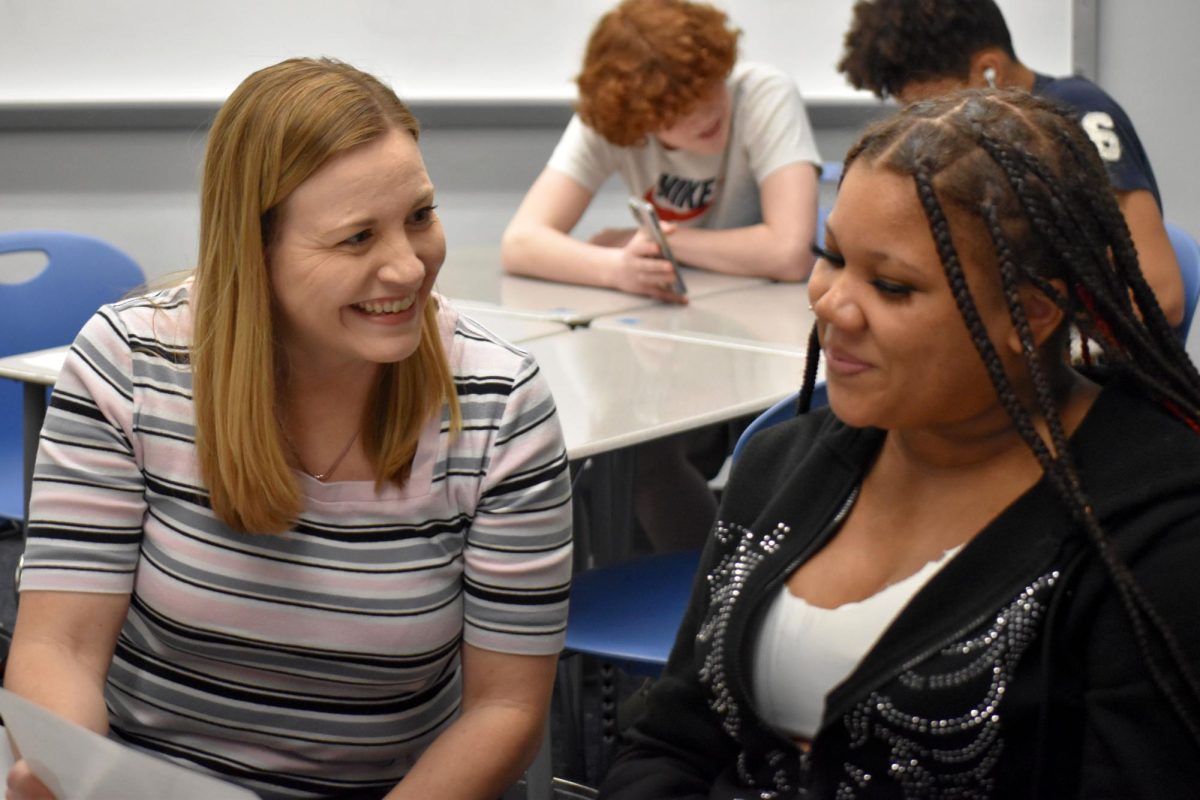
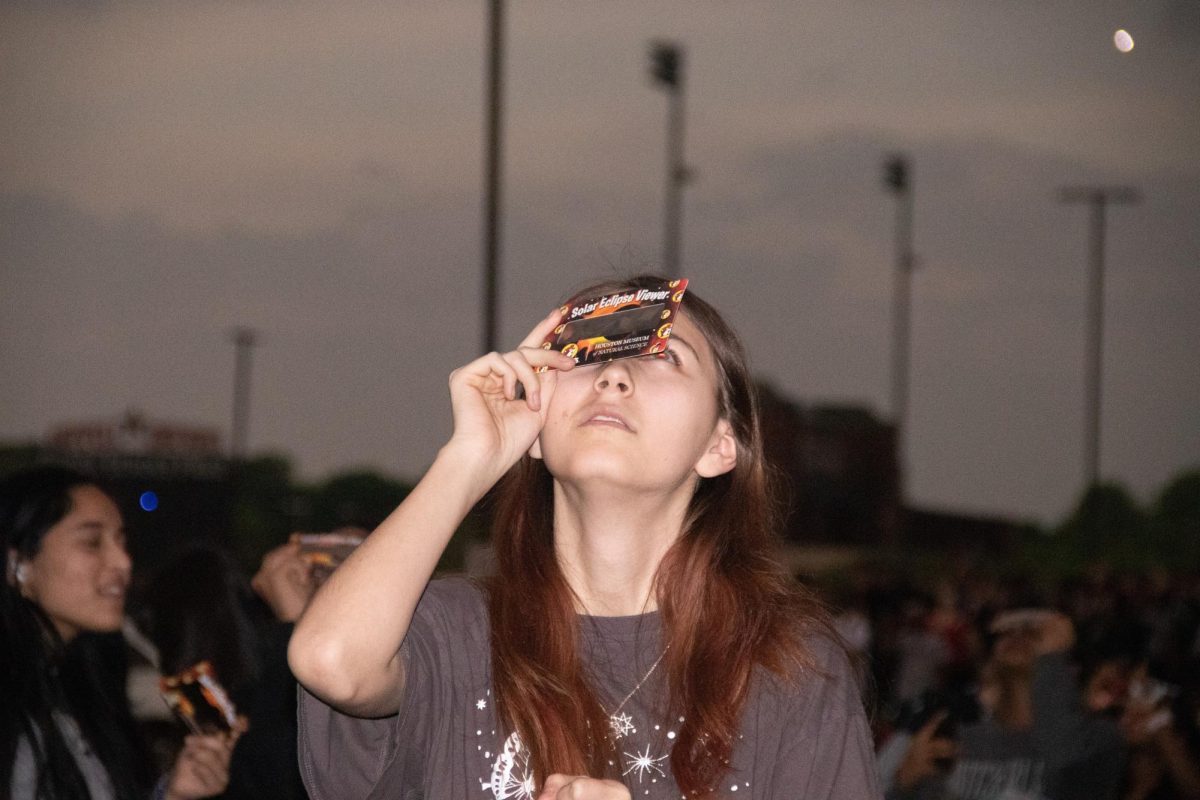










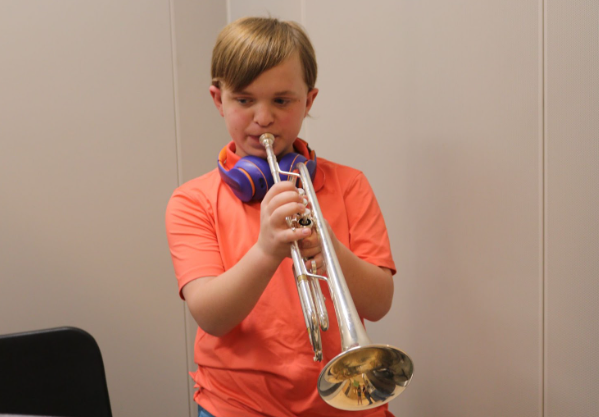




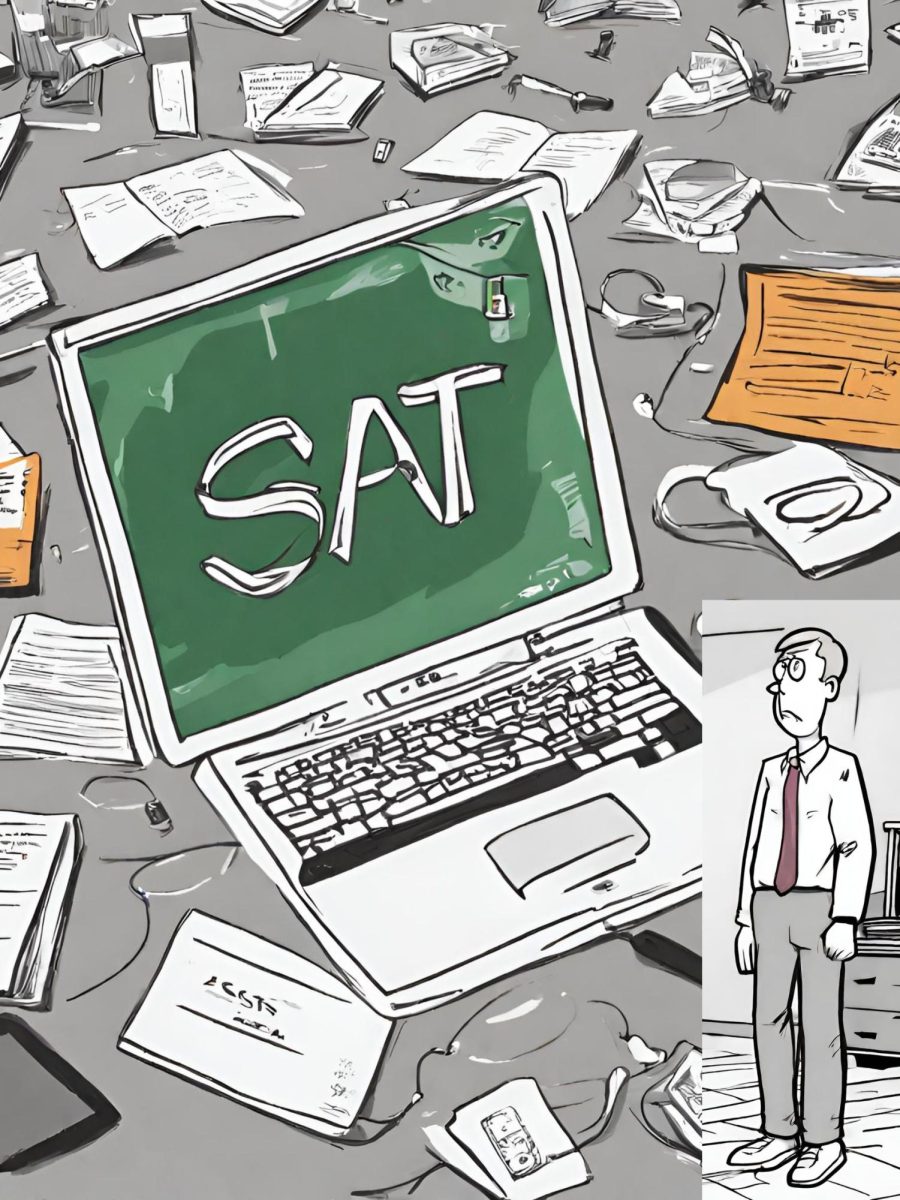






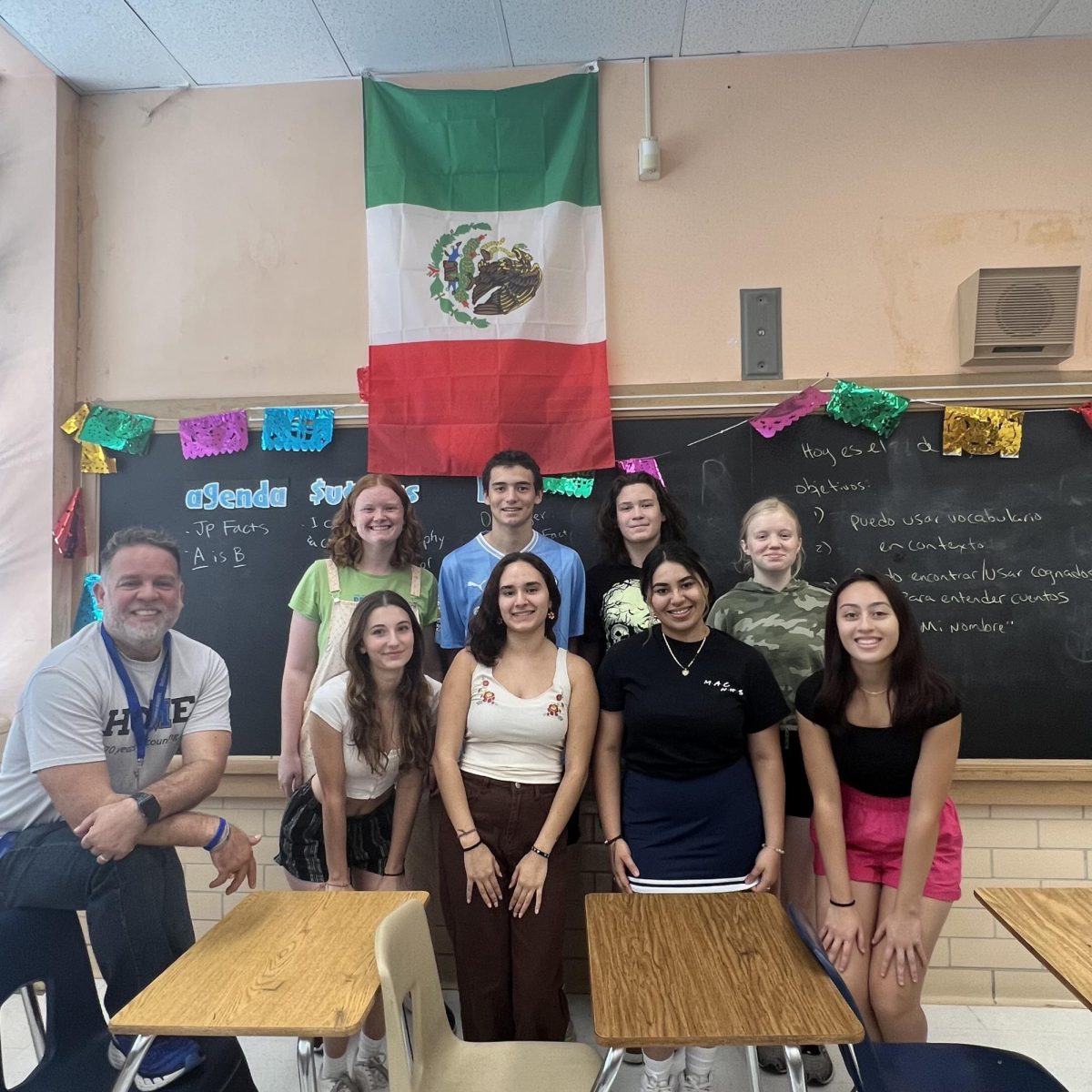

![IN THE SPOTLIGHT: Junior Zalie Mann performs “I Love to Cry at Weddings,” an ensemble piece from the fall musical Sweet Charity, to prospective students during the Fine Arts Showcase on Wednesday, Nov. 8. The showcase is a compilation of performances and demonstrations from each fine arts strand offered at McCallum. This show is put on so that prospective students can see if they are interested in joining an academy or major.
Sweet Charity originally ran the weekends of Sept. 28 and Oct. 8, but made a comeback for the Fine Arts Showcase.
“[Being at the front in the spotlight] is my favorite part of the whole dance, so I was super happy to be on stage performing and smiling at the audience,” Mann said.
Mann performed in both the musical theatre performance and dance excerpt “Ethereal,” a contemporary piece choreographed by the new dance director Terrance Carson, in the showcase. With also being a dance ambassador, Mann got to talk about what MAC dance is, her experience and answer any questions the aspiring arts majors and their parents may have.
Caption by Maya Tackett.](https://bestofsno.com/wp-content/uploads/2024/02/53321803427_47cd17fe70_o-1-1200x800.jpg)
![SPREADING THE JOY: Sophomore Chim Becker poses with sophomores Cozbi Sims and Lou Davidson while manning a table at the Hispanic Heritage treat day during lunch of Sept 28. Becker is a part of the students of color alliance, who put together the activity to raise money for their club.
“It [the stand] was really fun because McCallum has a lot of latino kids,” Becker said. “And I think it was nice that I could share the stuff that I usually just have at home with people who have never tried it before.”
Becker recognizes the importance of celebrating Hispanic heritage at Mac.
“I think its important to celebrate,” Becker said. “Because our culture is awesome and super cool, and everybody should be able to learn about other cultures of the world.”
Caption by JoJo Barnard.](https://bestofsno.com/wp-content/uploads/2024/01/53221601352_4127a81c41_o-1200x675.jpg)





